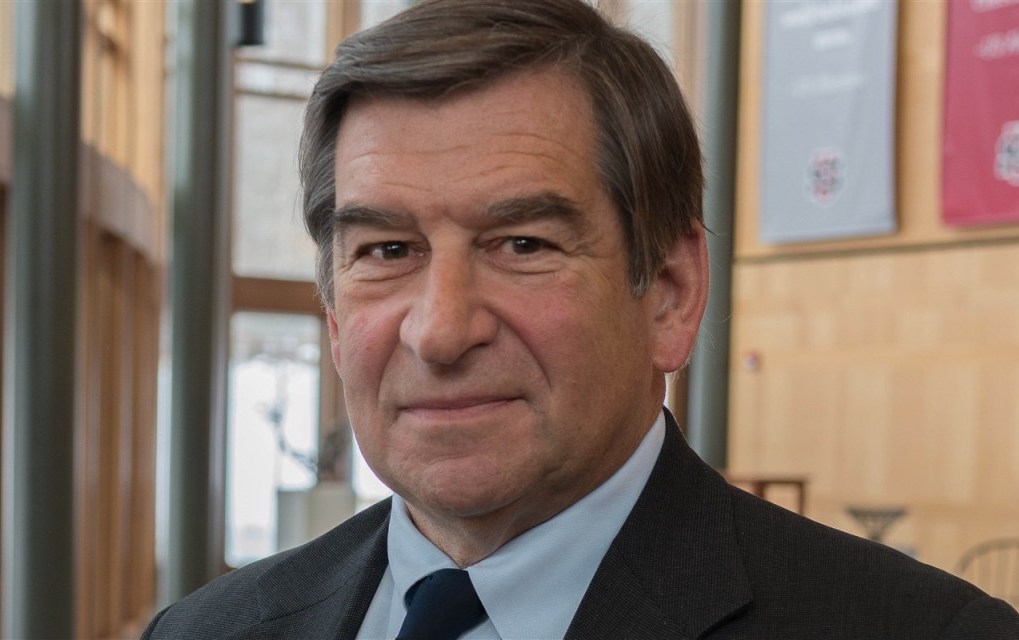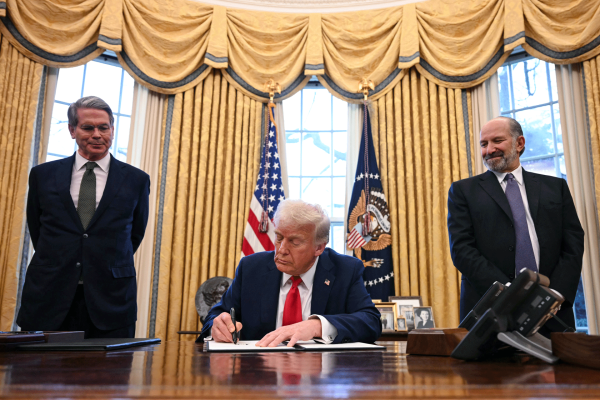An Interview with Mr. Bryan
Our school curriculum is an integral part of preparing the student body for college and beyond. Our Headmaster Rick Bryan is spearheading beneficial changes not only to our school curriculum but also to several other aspects of the school. I sat down with Mr. Bryan to discuss these changes.
Mr. Bryan, a US alum, brings a wealth of experience to the University School community. Originally aspiring to attend law school, he instead chose a career path in education where he was first hired by Charlotte Country Day to be the Head of its Upper School. He then moved to the Nichols School, where he served as headmaster.
The field of education has changed dramatically, and preparatory schools are no exception. Mr. Bryan explained to me four of the major changes. First, the growth of technology in the classroom is now driving a large portion of classroom instruction. Second, college admissions have become much more competitive. Third, there a large trend towards the popularity of extracurriculars (sports, forensics, etc.). Fourth, the emphasis on the arts has grown exponentially to the point that it is now equally as important as other subjects.
Moving on to University School-specific changes that he has seen and liked, Mr. Bryan points out that the scope of classes offered has widened. Another exciting change he has witnessed is the growth of diversity. He has seen the University School community work incredibly hard to bring in more students from different ethnicities and backgrounds.
When chosen for the job as our school’s headmaster, Mr. Bryan was given the results and recommendations of a group of faculty commissioned to study the current curriculum and develop a new and distinctive K-12 curriculum. He wasted no time in implementing the group’s recommendations. Mr. Bryan points out, “The faculty is going to oversee the curriculum changes, not the administration.” Furthermore, the headmaster has commissioned other groups to analyze and improve other parts of the school. For example, a K-12 technology group has been instituted to study how new trends in technology can be brought to the school.
One notable aspect in the curriculum change is the implementation of a new track for students in STEM(Science, Technology, Engineering, and Mathematics). The Math Department is positioning students to be one or more year(s) ahead of what the current curriculum allows. For example, several students are taking Geometry their freshman years with the goal of them taking Multivariate Calculus in their Senior Years. Other students are being positioned to take AP Calculus their freshmen years and on track to take further Post-AP classes such as Linear Algebra and Differential Equations. In the science department, new courses are being rolled out and designed, such as Biotechnology and Post-AP Physics.
In addition, Mr. Bryan is focused on improving several parts of extracurricular life at US. The Anderson Scholar program is a case in point. Mr. Bryan hopes to broaden the program to more students so that more students will be able to participate in detailed research programs that can prepare US Students for collegiate-level research programs and careers in STEM. Another focus for Mr. Bryan is civic engagement. Mr. Bryan hopes to involve the US student body in more volunteering programs: “Instead of just giving $5 because you get to wear jeans, let’s have the students work more with the less fortunate of Cleveland” he says. Mr. Bryan is not just concerned with bridging the gap between the US community and Cleveland, but between the US community and the world. He wants US students focused on sustainability and diversity. He is considering the idea of excusing students from class at set times to work on environmental projects such as planting trees. Furthermore, Mr. Bryan wants students to experience global opportunities, and he foresees more encouragement towards boys spending time abroad during their time at US.
The changes that Mr. Bryan is leading are not the last to come. He makes the important point, “A school cannot accept the status quo.”






